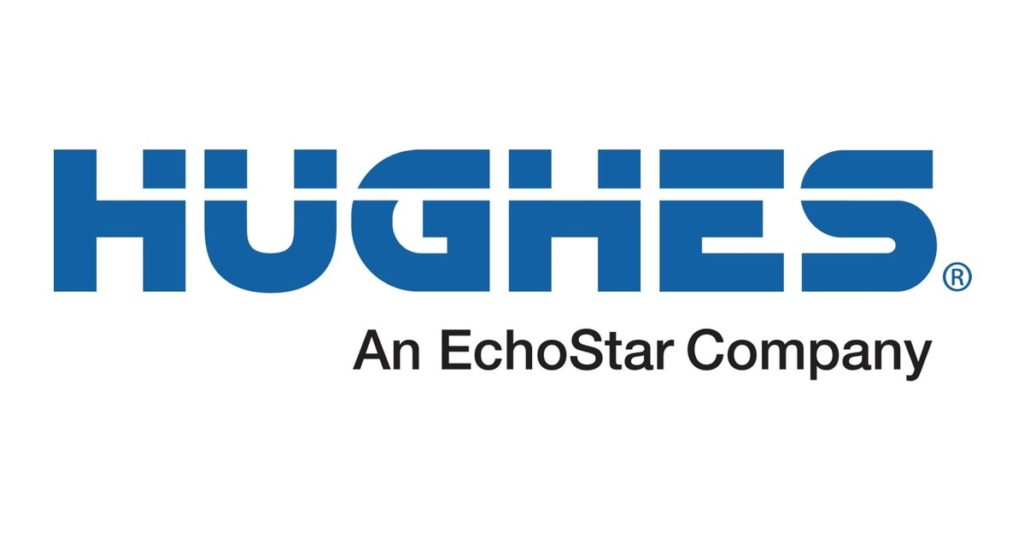GERMANTOWN, Md.,, June 22, 2021 / PRNewswire / – Hughes network systems, LLC (HUGHES), an innovator in satellite technology and networking for 50 years, helps small businesses prepare for an active hurricane season in 2021 with their subscription-based Internet backup service HughesNet® Internet continuity and five storm preparation tips. Each year, hurricanes pose a threat to terrestrial Internet access through cable, optical, DSL and cellular infrastructure, leading to the loss of key small business functions such as credit card processing and connection to web-based applications.
“Natural disasters such as hurricanes threaten land connections and create an urgent need for communications,” he said. Peter Gyula, Senior Vice President, Hughes. “One of the many benefits of satellite connectivity is that the technology is 22,000 miles above the ground – beyond the effects of severe storms. HughesNet Internet Continuity uses satellites to help small businesses maintain access when wired Internet infrastructure is damaged.”
Subscription-based Internet backup services, such as HughesNet Internet Continuity, help maintain operations and communication channels during unexpected outages. The HughesNet service has an automatic fault tolerance router attached to both the basic terrestrial service and the satellite backup connection. If the main service stops, the router automatically switches the connection from terrestrial to satellite. When the main service is restored, it is automatically returned.
Here are five tips to help small businesses prepare for hurricane season:
1. Create a checklist with an emergency plan
It is vital to have a contingency plan checklist to ensure rapid recovery from a disaster. The list should include contact information for colleagues and support services, as well as login information for key business features such as web portals, social media and bank accounts.
2. Establish roles and responsibilities
In emergencies, it is extremely important to understand the roles and responsibilities. Defining a clear chain of command in advance helps to minimize confusion and ensure appropriate action. For business, key roles include maintaining critical operations, contacting customers, and reporting to all employees.
3. Download and bookmark emergency information applications
In natural disasters, the functioning of communication services can mean the difference between life and death. Prepare in advance by downloading mobile apps for emergency notifications, such as those from American Red Cross or FEMA. Helps to mark sites like National Meteorological Service in real time for local storm tracking.
4. Establish communication channels
Some emergency notification systems broadcast alerts via text messages, while others may broadcast via phone calls. Take some time to think about which communication channel would be most effective for employees and customers. For example, it may be beneficial for businesses with more on-site workers than for office workers to choose a text messaging system. Alternatively, if most employees are in the office, software that includes email alerts may be more effective. Companies often choose systems that provide multi-channel communication to alert employees on all channels they can use, including SMS text, phone / voicemail, email and social media.
5. Make arrangements for on-site shelter or evacuation
One of the most challenging decisions facing people in an emergency is whether to evacuate or take shelter on the spot. It is extremely important to have comprehensive plans for both scenarios. Make sure there are adequate supplies, such as food, water and safety kits, in both the home and business. Remember to include technology redundancies, such as fully charged devices, extra batteries, flashlights, radios, and additional external power sources.
Called Best satellite internet provider since 2021 by US News & World Report 360 Reviews, HughesNet connects more than 1,500,000 families and businesses across America with broadband speeds in areas that telecommunications network providers have largely bypassed. This includes recently provided additional capacity over Puerto Rico, a region particularly hard hit by hurricanes in recent years.
To learn more about HughesNet Internet Continuity, visit internetcontinuity.hughesnet.com.
About Hughes’ network systems
Hughes Network Systems, LLC (HUGHES), an innovator in satellite and multitransport technologies and networks for 50 years, offers broadband equipment and services; managed services, including a smart, software-defined network; and the overall operation of the network for millions of users, businesses, governments and communities around the world. Hughes’ flagship Internet service, HughesNet®, connects more than 1.5 million subscribers across America, and the Hughes JUPITER системата system provides Internet access for tens of millions more worldwide. Hughes supplies more than half of the global satellite terminal market to leading satellite operators, flight service providers, mobile network operators and military customers. A managed network service provider, Hughes maintains nearly 500,000 corporate sites with its portfolio of HughesON кабе cable and wireless solutions. Based in Germantown, Maryland, USA, Hughes is owned by EchoStar. To learn more, visit www.hughes.com or follow HughesConnects on Twitter and LinkedIn.
About EchoStar
EchoStar Corporation (NASDAQ: CLAUSE) is a leading global provider of satellite communication solutions. Based in Englewood, Colorado., and doing business worldwide, EchoStar is a pioneer in communication technology through its business segments Hughes Network Systems and EchoStar Satellite Services. For more information visit echostar.com. I follow @EchoStar on Twitter.
© 2021 Hughes Network Systems, LLC, EchoStar. Hughes and HughesNet are registered trademarks, and JUPITER is a trademark of Hughes Network Systems, LLC.
SOURCE Hughes Network Systems, LLC


